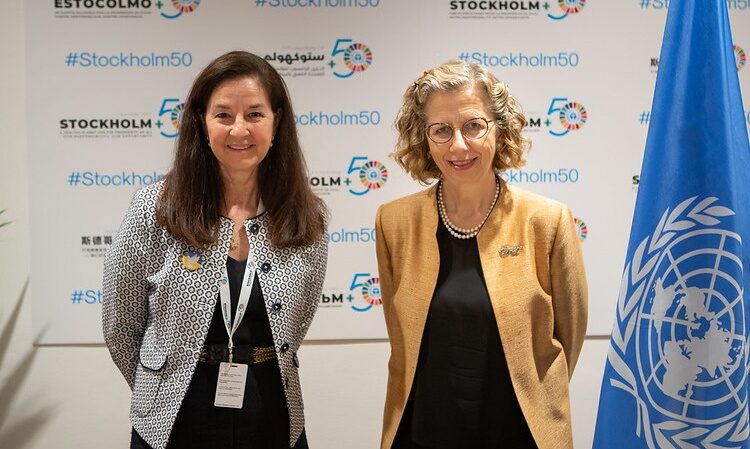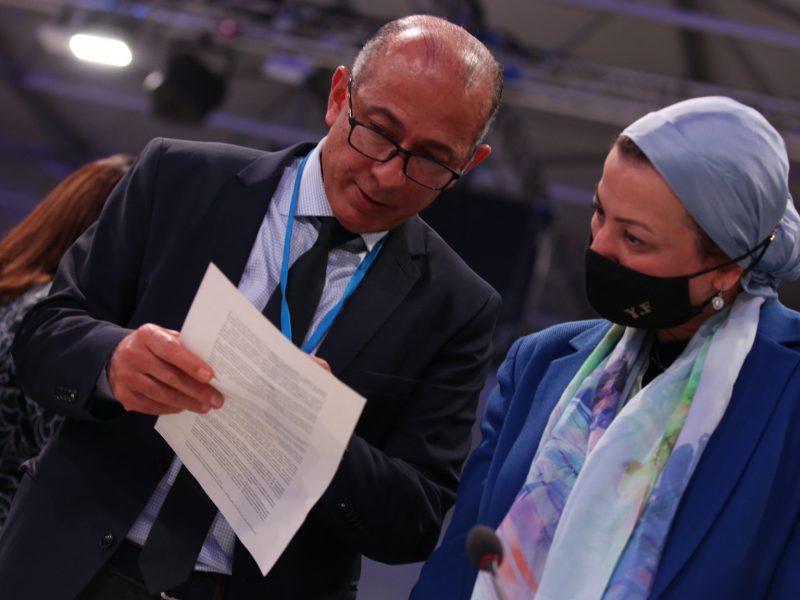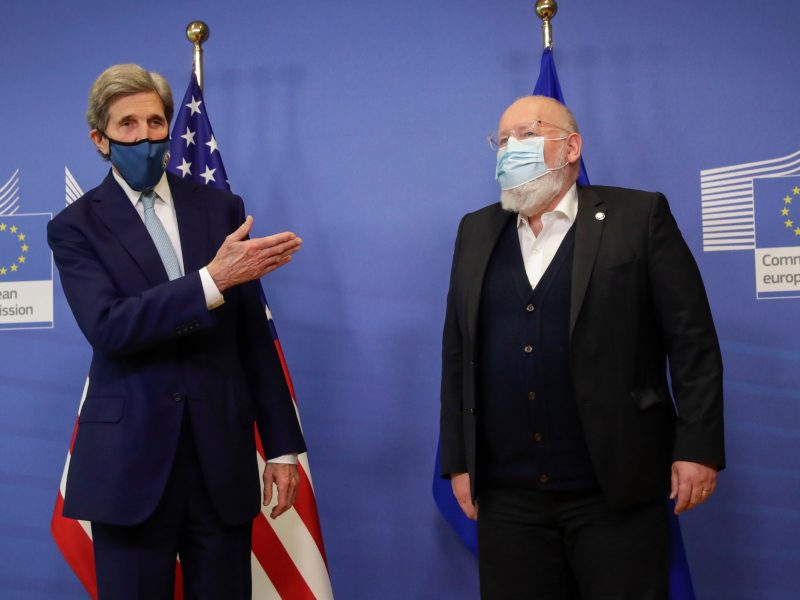
With the UN climate summit COP27 less than three weeks away, world nations are still struggling to find common ground on key issues on the agenda, such as ‘loss and damage’ to compensate vulnerable countries for climate-related disasters.
“I think there will be a big discussion on that topic,” US assistant secretary of state Monica Medina told journalists in Brussels.
Egypt, this year’s host country, wants to prioritise climate reparations.
But last year in Glasgow, the US and the European Union rejected calls to create a Loss and Damage Finance Facility, a fund backed by large emitters to assist vulnerable regions affected by climate-related disasters.
Instead, Medina proposes improving the instruments that are already in place to swiftly assist countries affected by climate change, without creating a new funding mechanism, which could take time to be developed and implement.
“What I think is needed is funding for the vulnerable communities now,” she stated when asked by EURACTIV about ‘loss and damage’.
“We put large amounts of money in some of the multilateral development banks and the Green Climate Fund, and I think the focus should be on getting some of that funding to where it’s needed, rather than trying to create another fund.”
Multilateral development banks provided around $51 billion in climate finance to low- and middle-income economies in 2021, according to a recent report by the European Investment Bank (EIB). Of this total, more than $33 billion (65%) was for climate change mitigation and more than $17 billion (35%) for climate change adaptation.
But critics say a loss and damage facility is still needed. They argue that current mechanisms available under the UN convention on climate change (UNFCCC) are geared towards averting and minimising damage through mitigation and adaptation measures and do not provide means for addressing it or helping people recover from the impacts of climate disasters beyond adaptation funding.
In response, Medina said financing mechanisms were already in place and needed to be unblocked.
“We have resources that are already dedicated to climate change that are sort of stuck, and we need to help create the mechanisms for those funds to flow into communities sooner rather than later,” she argued.
In this regard, she said a key role is played by private funding from big organisations and that often the funding is there, but it doesn’t reach the communities that need it most.
The role of adaptation
In Egypt, US President Joe Biden will have the opportunity to showcase the progress made by his administration on climate issues and environmental preservation since Donald Trump was ousted from the White House.
“In the past two years, we have been working hard to get the US back on track in many ways in the environmental arena,” Medina told journalists.
She pointed to achievements made under the Biden administration, including the US rejoining the Paris climate agreement and signing the Inflation Reduction Act in August this year as part of the country’s efforts to cut emissions.
The US government official also explained that a key component of this year’s COP will be adaptation, a topic with “fewer issues to negotiate but an awful lot of conversation to be had.”
At COP26 in Glasgow, the US government launched the President’s Emergency Plan for Adaptation and Resilience (PREPARE), to help people in developing countries adapt to climate change and manage its impacts. The motive behind the fund was that present adaptation measures are too fragmented to deal with the scale of the adaptation challenge.
The Action Plan outlines key areas where the United States will work on adaptation, like strengthening early warning systems, mainstreaming adaptation into development programs, and budgets supporting community-led adaptation.
And these efforts also include unlocking finance to support climate adaptation action, Medina said.
“We’ve made our commitment, we now have the means to actually make it real,” she told EURACTIV.
“Other countries need to do the same. The high-emitting countries need to do the same. We are helping a lot of them, but there are some that really need to step up now”.
[Edited by Frédéric Simon/Nathalie Weatherald]








